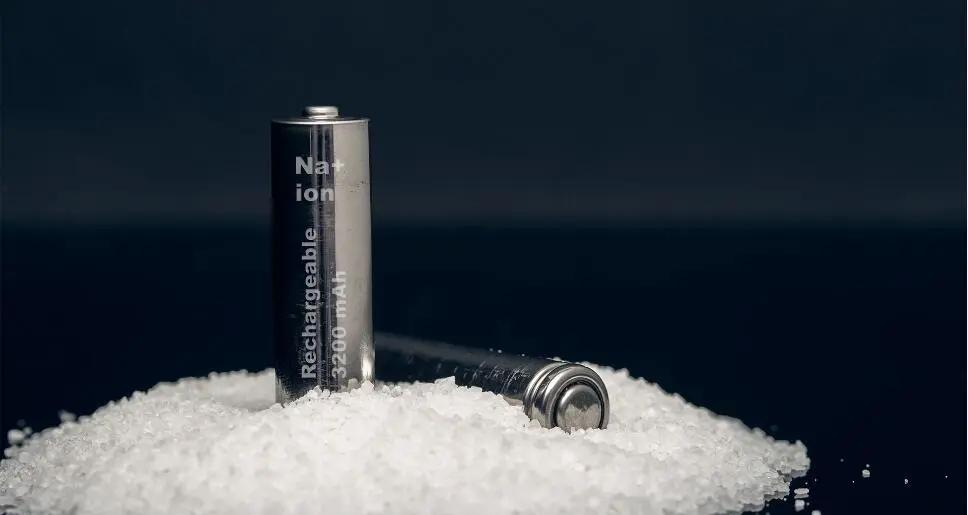Blog
Benefits of Sodium-ion Battery(Na-ion Battery)
2025-05-22 | Calvin

As the global shift towards renewable energy accelerates, the demand for efficient, cost-effective, and environmentally friendly energy storage solutions is greater than ever. While lithium-ion (Li-ion) batteries have long dominated the market, sodium-ion (Na-ion) batteries are emerging as a viable alternative. With advantages in affordability, sustainability, and safety, Na-ion technology presents a promising solution, particularly for large-scale energy storage applications. This article explores the key benefits of sodium-ion batteries and their potential impact on the energy industry.
Abundance and Cost-Effectiveness
A major advantage of sodium-ion batteries lies in the natural abundance of sodium. Unlike lithium, which is relatively scarce and geographically concentrated in specific regions such as South America’s Lithium Triangle, sodium is widely available and can even be extracted from seawater. This abundance makes sodium significantly cheaper than lithium—approximately one-fiftieth of its cost—leading to reduced battery production expenses.
Lower costs have direct implications for energy accessibility. Large-scale storage solutions, such as those used for renewable energy grids, can benefit from more economical sodium-ion batteries, potentially reducing electricity costs for consumers and accelerating the global transition to sustainable energy.
Environmental Impact: A Greener Alternative
The environmental footprint of sodium-ion batteries is significantly lower compared to their lithium-based counterparts. Lithium extraction is an energy-intensive process that consumes vast amounts of water and contributes to soil and water contamination. In contrast, sodium extraction from seawater or other natural sources is less destructive and has minimal environmental impact.
Furthermore, Na-ion batteries do not rely on cobalt, a material commonly used in Li-ion batteries that raises ethical and environmental concerns due to its mining practices. By eliminating reliance on scarce and controversial resources, sodium-ion technology offers a more sustainable approach to battery manufacturing, aligning with global efforts to reduce ecological harm.
Safety Features: Enhanced Stability and Reliability
Safety is a crucial consideration for any energy storage system, and sodium-ion batteries excel in this aspect. One key safety feature of Na-ion batteries is their ability to discharge to 0V without performance degradation. In contrast, Li-ion batteries can suffer from irreversible damage when deeply discharged, potentially leading to the formation of lithium metal deposits that increase the risk of short circuits and fires.
Additionally, Na-ion batteries are less prone to thermal runaway—a major safety issue with Li-ion batteries that can result in fires or explosions under extreme conditions. The lower reactivity of sodium contributes to a more stable and reliable energy storage system, making these batteries a preferable choice for applications where safety is paramount, such as stationary energy storage and industrial uses.
Superior Temperature Tolerance
One of the most notable advantages of sodium-ion batteries is their resilience in extreme temperatures. Li-ion batteries tend to experience significant performance degradation in very cold or hot environments, making them less effective in regions with harsh climates. In contrast, Na-ion batteries maintain stable performance across a wider temperature range, making them particularly suited for:
- Grid storage solutions in diverse climatic regions
- Electric vehicles (EVs) operating in extreme temperatures
- Remote and off-grid applications, where consistent battery performance is critical
This thermal stability enhances the practicality of sodium-ion technology, especially in applications requiring long-term reliability in challenging environmental conditions.
Complementing Lithium-Ion Batteries
Rather than replacing lithium-ion batteries entirely, sodium-ion technology is positioned to complement existing energy storage solutions. While Na-ion batteries have a lower energy density than Li-ion batteries, they remain highly effective in applications where energy density is not the primary concern. These include:
- Stationary energy storage for renewable power grids
- Backup power systems for commercial and industrial use
- Certain electric vehicle segments, particularly low-range EVs and fleet vehicles
Another advantage of Na-ion batteries is their compatibility with existing Li-ion battery production infrastructure. Manufacturers can adapt current production lines to produce sodium-ion cells with minimal modifications, accelerating their commercial adoption and reducing initial investment costs.
The Future of Sodium-Ion Batteries
As research and development in Na-ion technology progress, improvements in energy density, cycle life, and overall performance are expected. Companies and research institutions worldwide are actively working on optimizing sodium-ion battery chemistry to close the gap with lithium-based alternatives.
Recent breakthroughs include advancements in electrode materials, electrolyte formulations, and manufacturing techniques that enhance the efficiency and lifespan of Na-ion batteries. The continued innovations in this field could lead to even broader applications, reducing dependency on lithium and making energy storage more affordable and sustainable.
Conclusion
Sodium-ion batteries present a compelling alternative to lithium-ion technology, offering significant advantages in cost, environmental sustainability, safety, and temperature resilience. While they may not completely replace Li-ion batteries, they provide a complementary solution for energy storage needs, particularly in large-scale and stationary applications.
As technological advancements continue, sodium-ion batteries have the potential to play a pivotal role in the transition to a more sustainable energy future. Their affordability and eco-friendliness make them an attractive option for industries and consumers alike, driving forward the goal of accessible and environmentally responsible energy storage solutions.
- Next:LiFePO4 Battery Voltage Chart Guide: No More Confusion About Battery Voltage
- Previous:What Is a Lithium Titanate Battery?
Contact Details
Lithium LiFePO4 Batteries and Lithium LiFePO4 Cells Supplier - LiFePO4 Battery Shop
Contact Person: Miss. Elena Wang
WhatsApp : +8615263269227
Skype : +8615263269227
WeChat :15263269227
Email : info@lifepo4batteryshop.com
All Products
Certification
Customer Reviews
- I have fond memories of our meeting in Shanghai with LiFePO4 Battery Shop Elena. Your company left a strong impression on me with its impressive growth and professionalism. We both value straightforwardness and honesty, which I believe are the most important qualities in any partnership. I am confident that we can build a successful collaboration based on these shared values. —— Robert from USA
- I've been working with LiFePO4 Battery Shop for years, and their reliability is unmatched. While other suppliers frequently change sales teams, LiFePO4 Battery Shop has consistently provided exceptional service with a stable team. Their commitment to quality and customer support truly sets them apart. —— Henry from Australia



